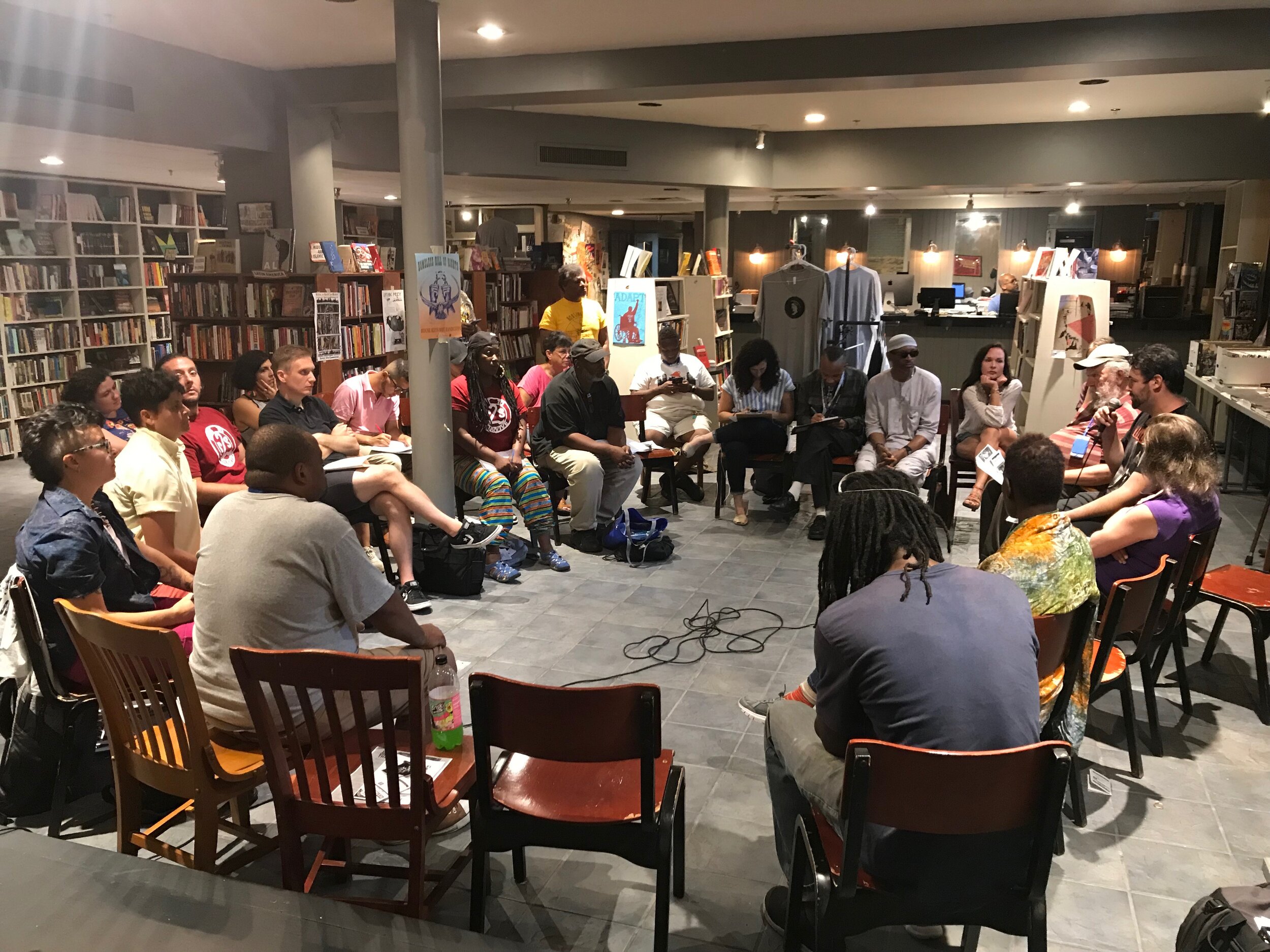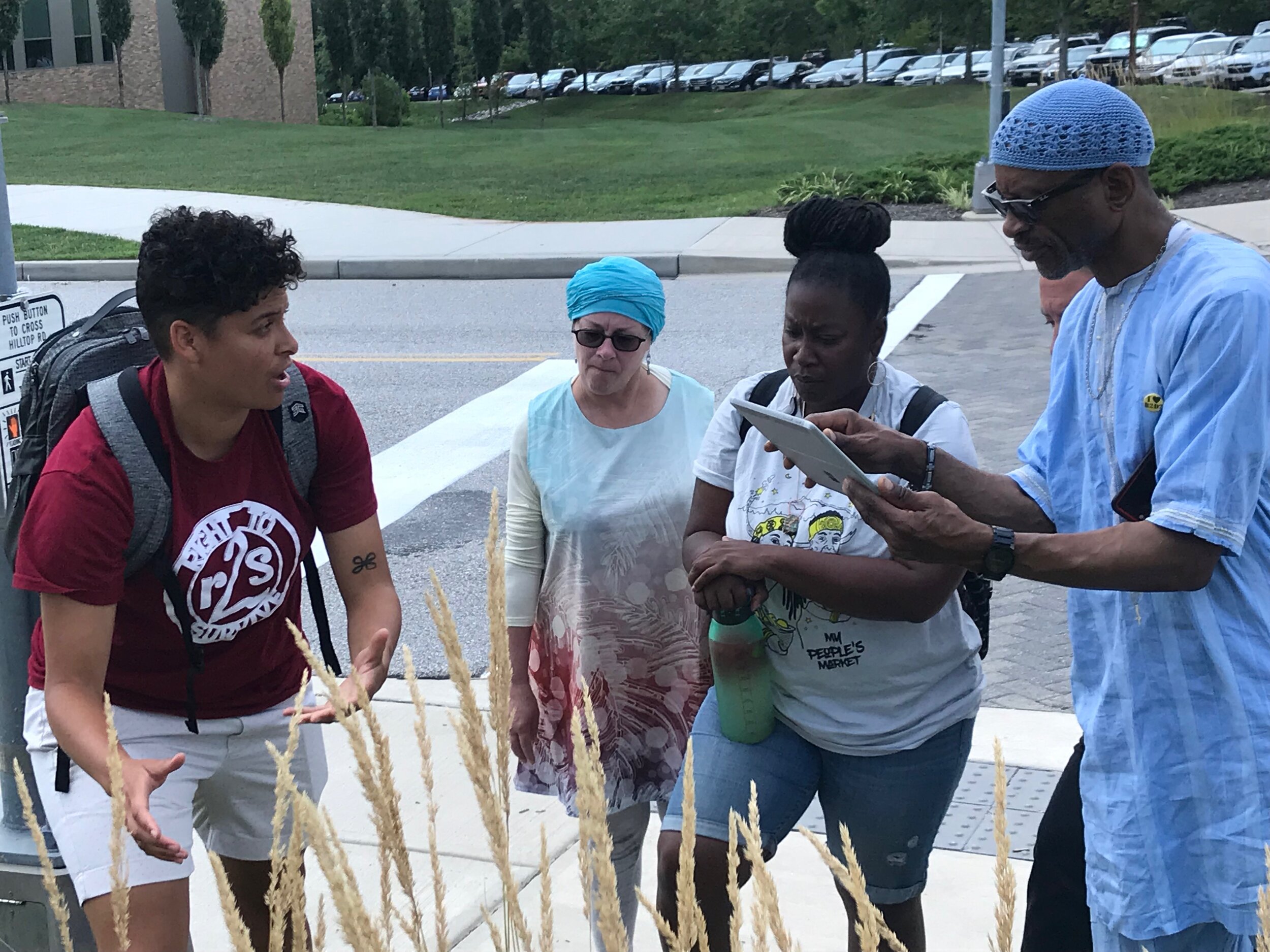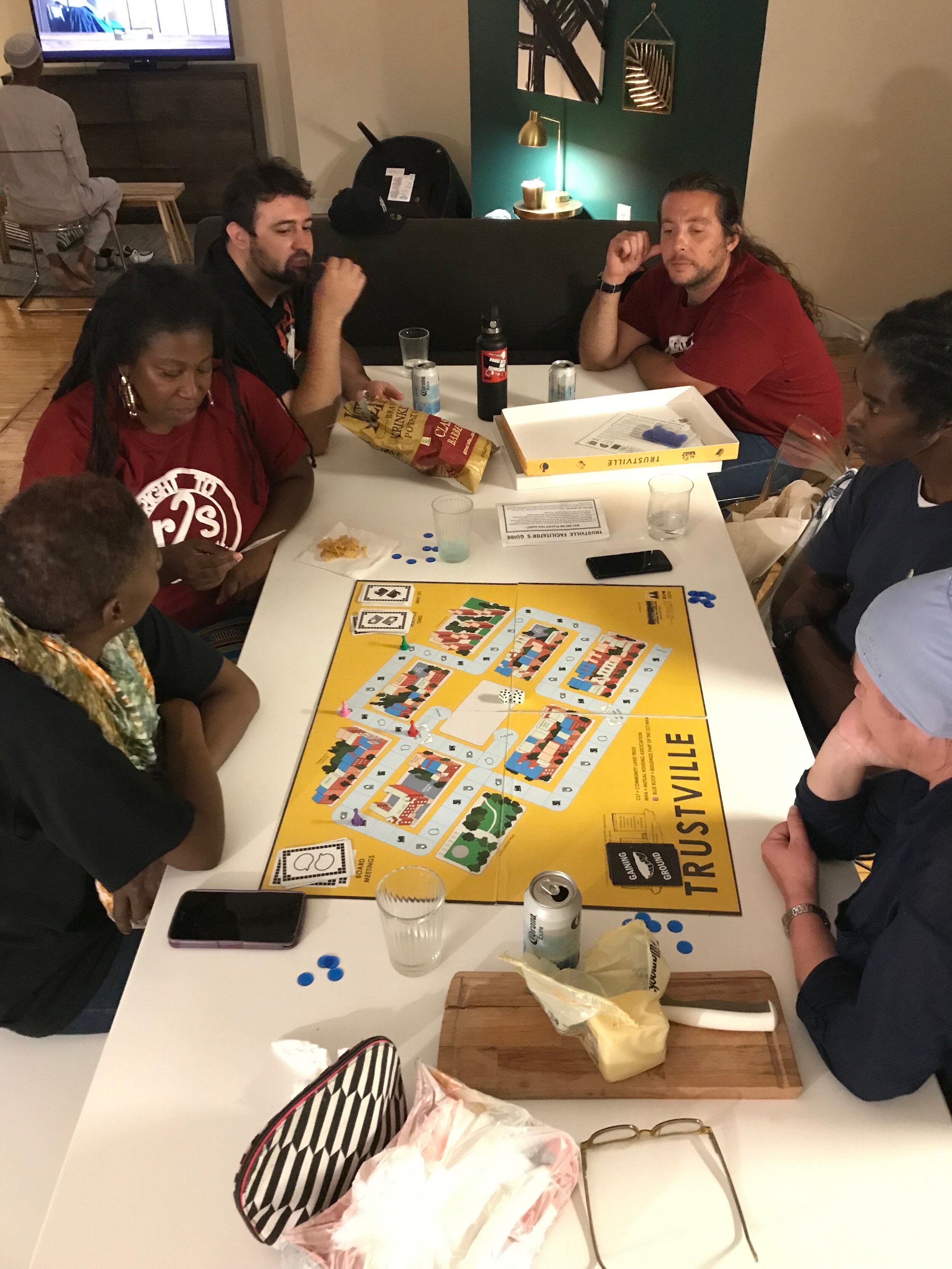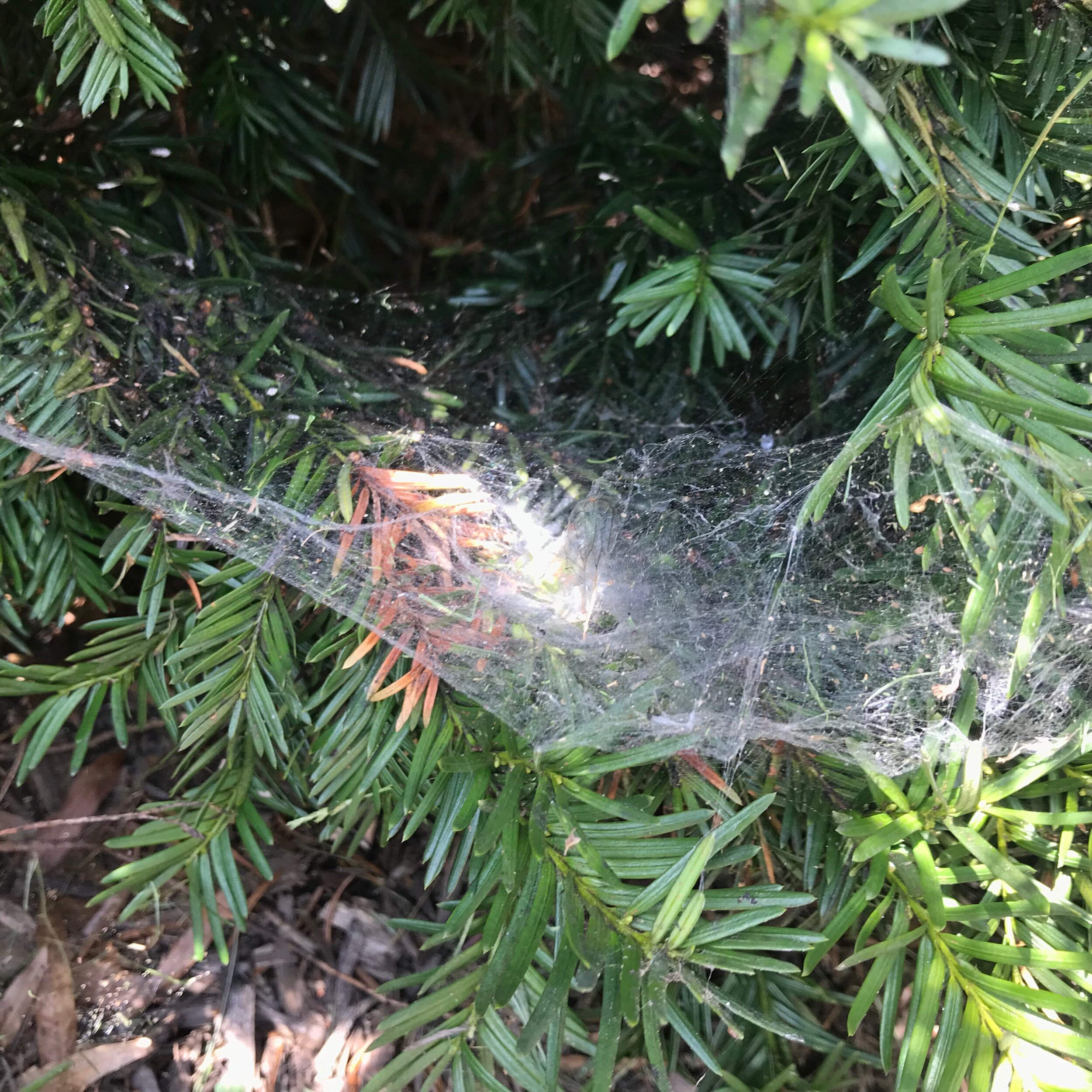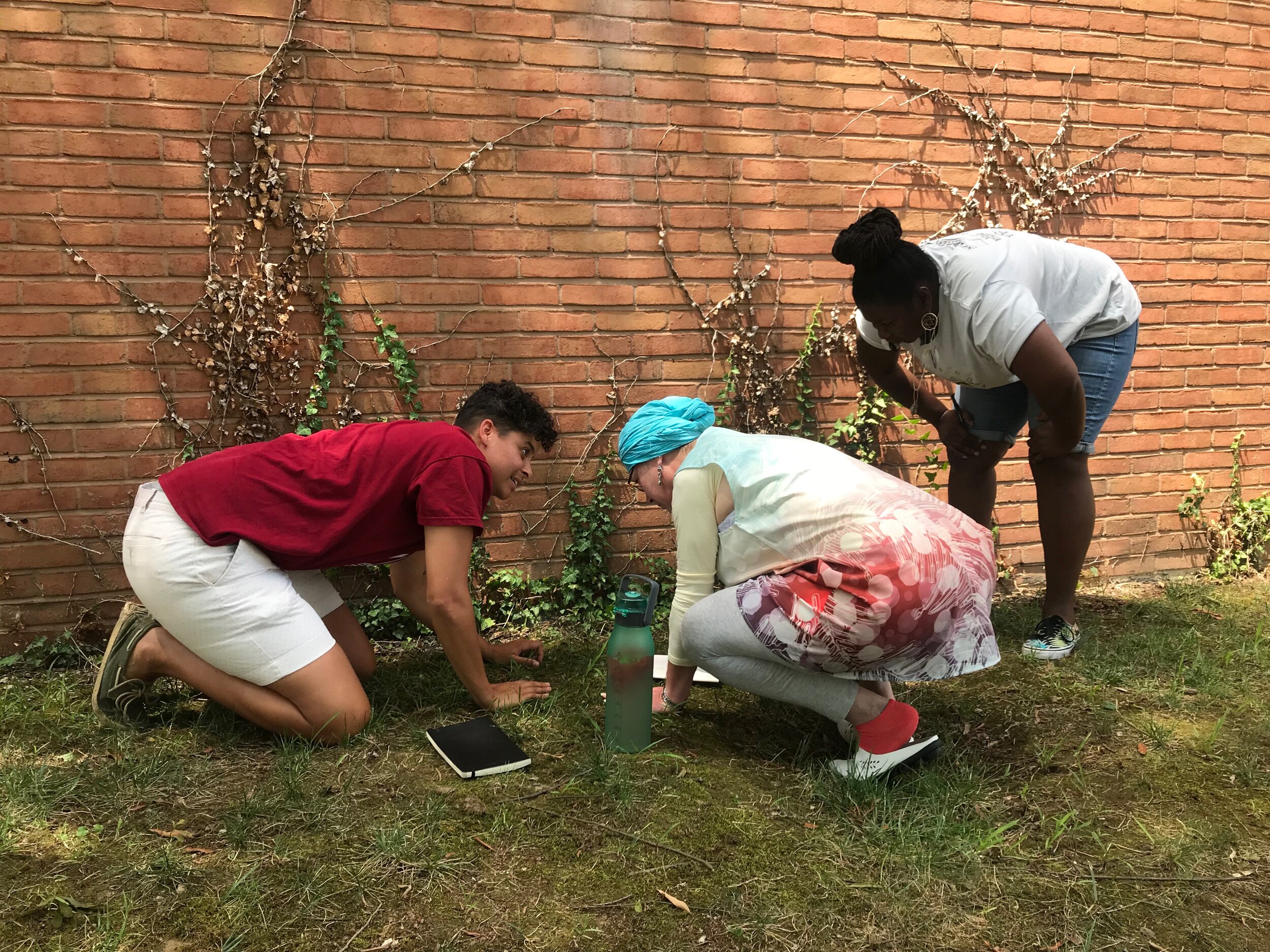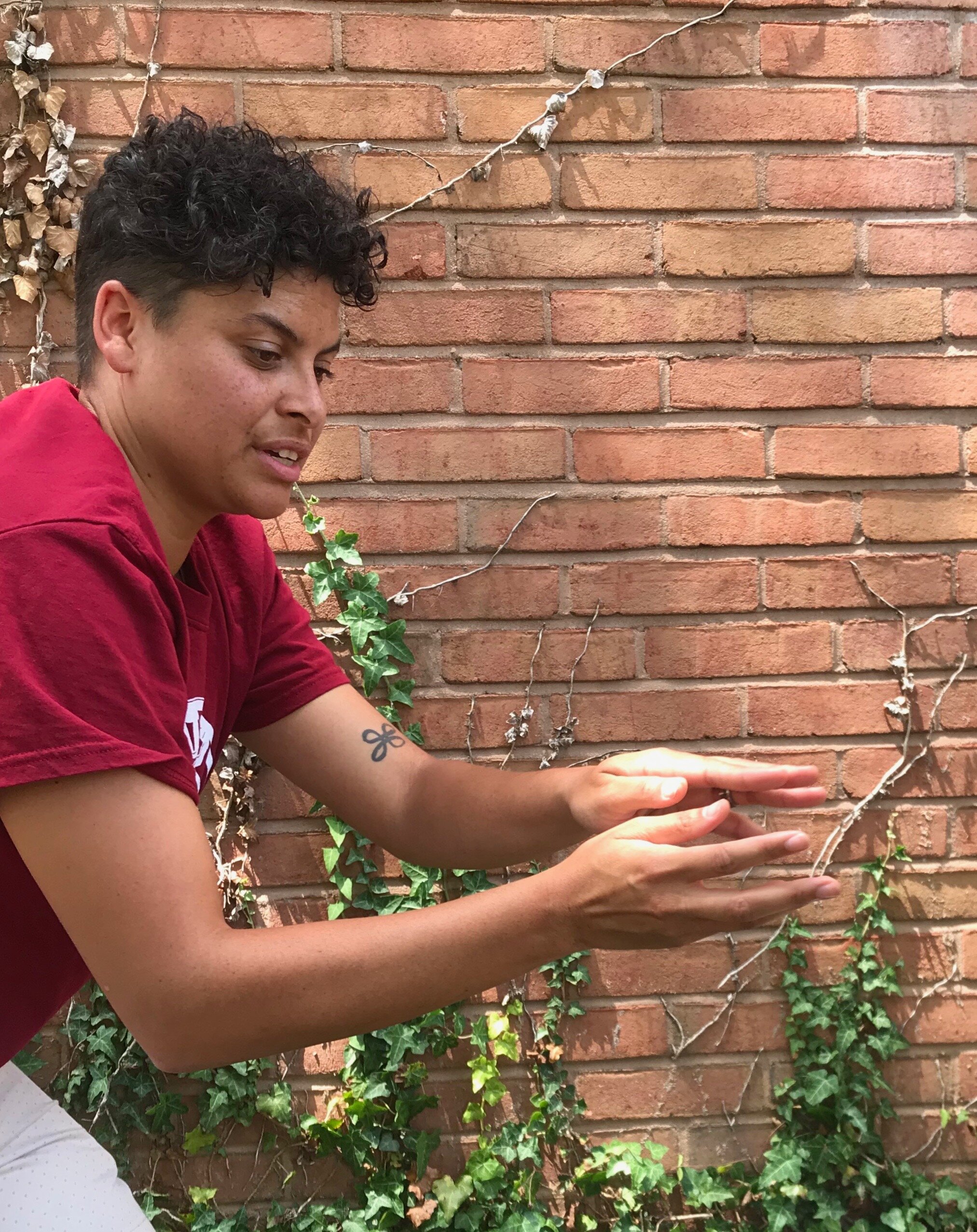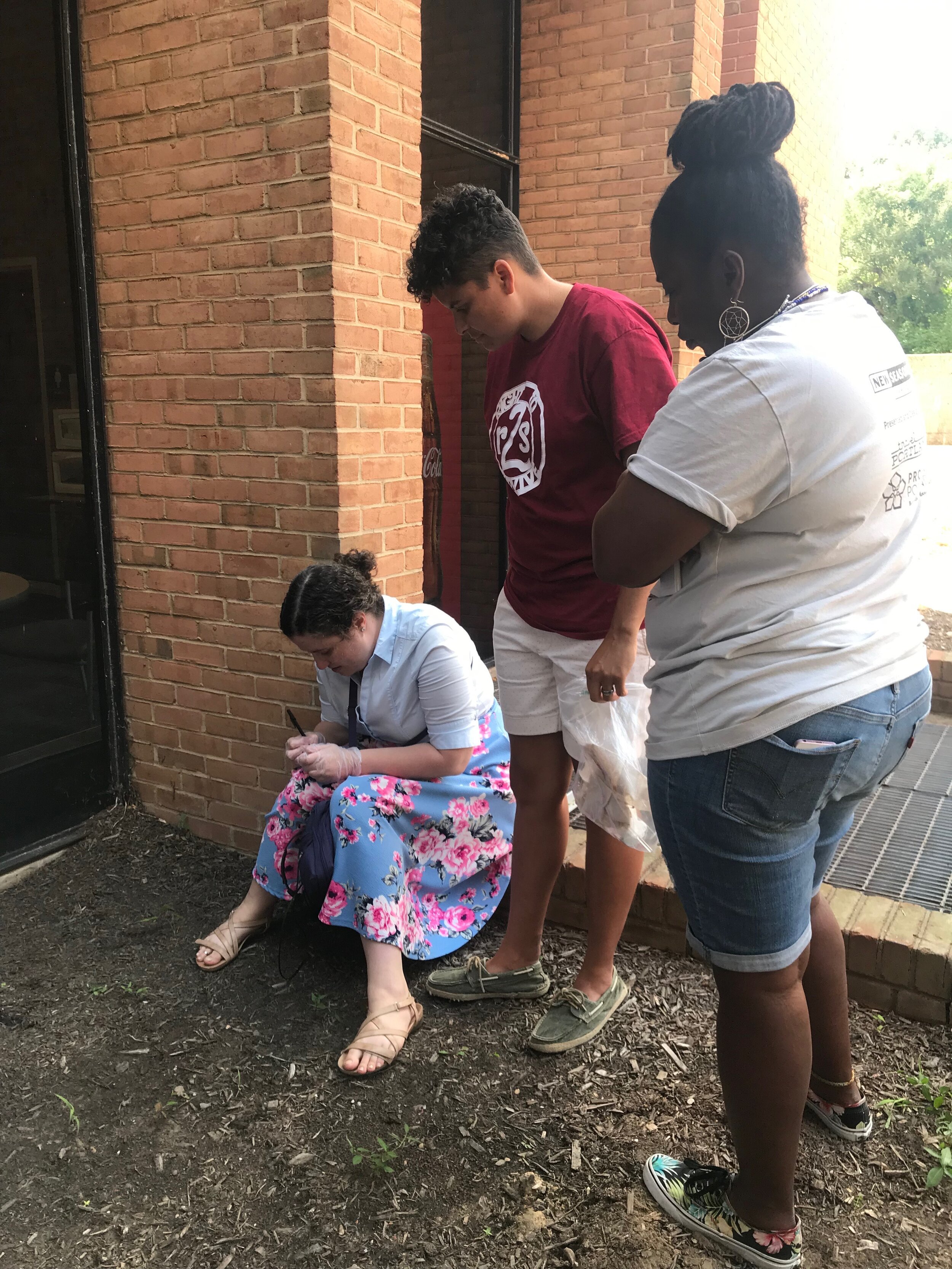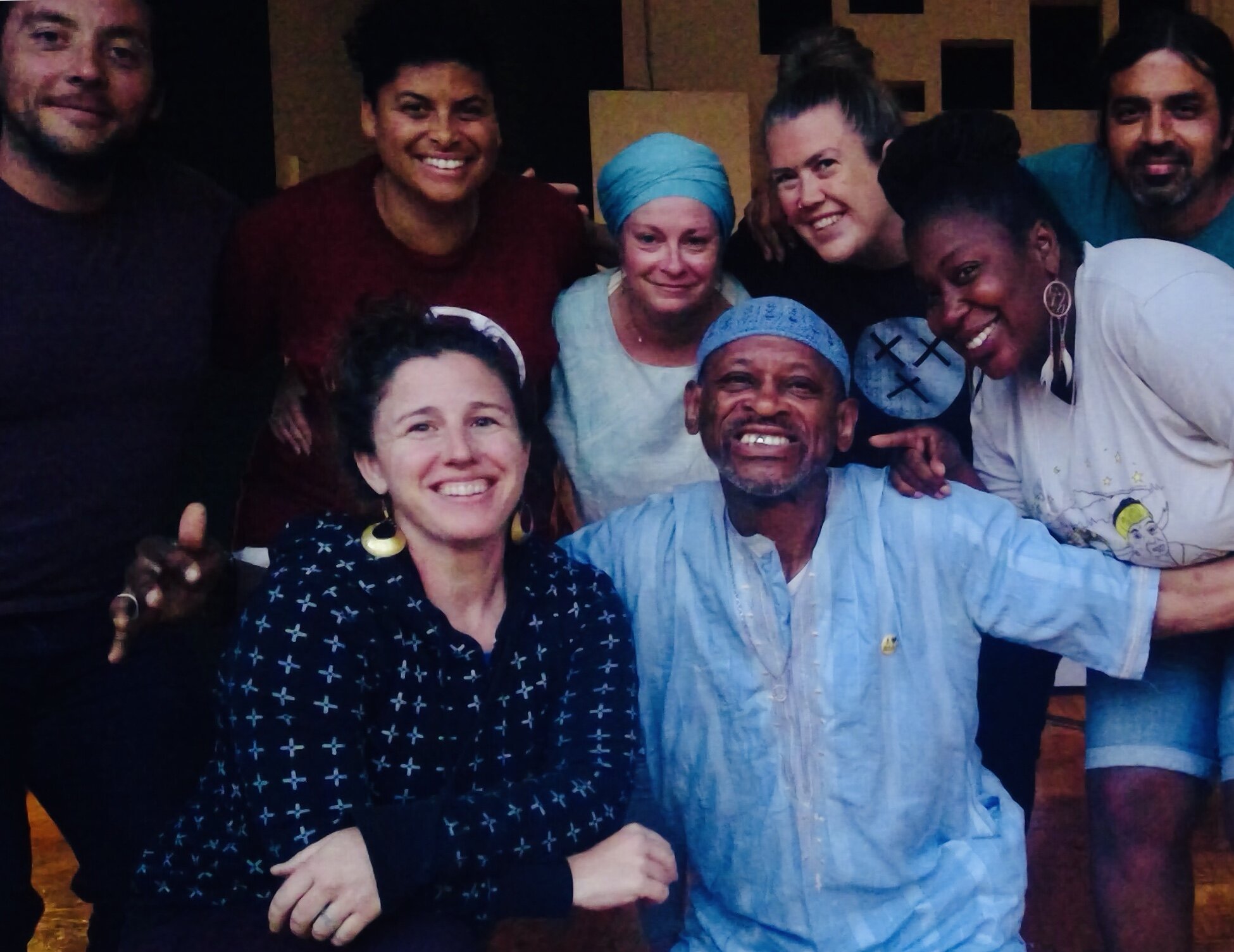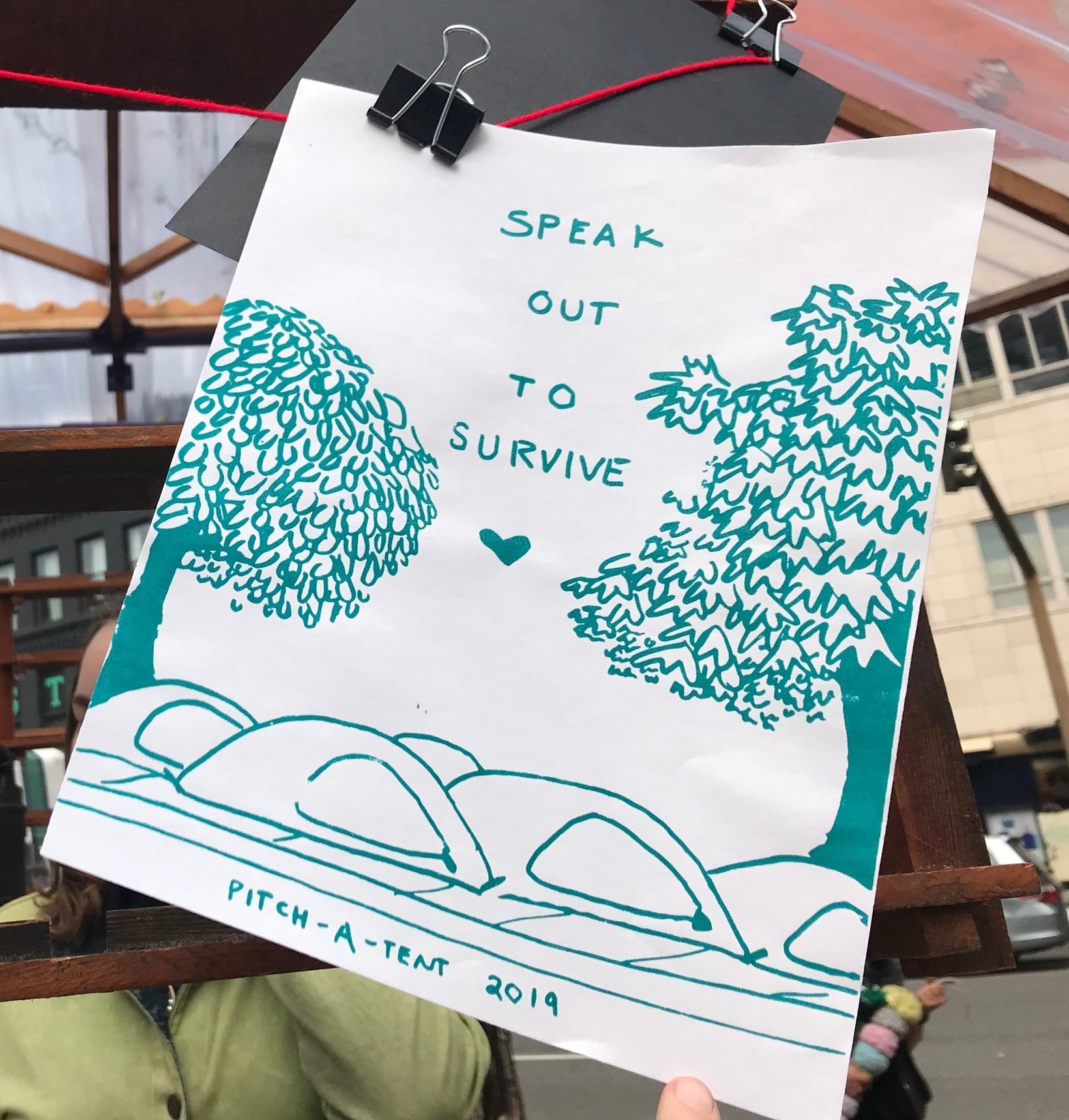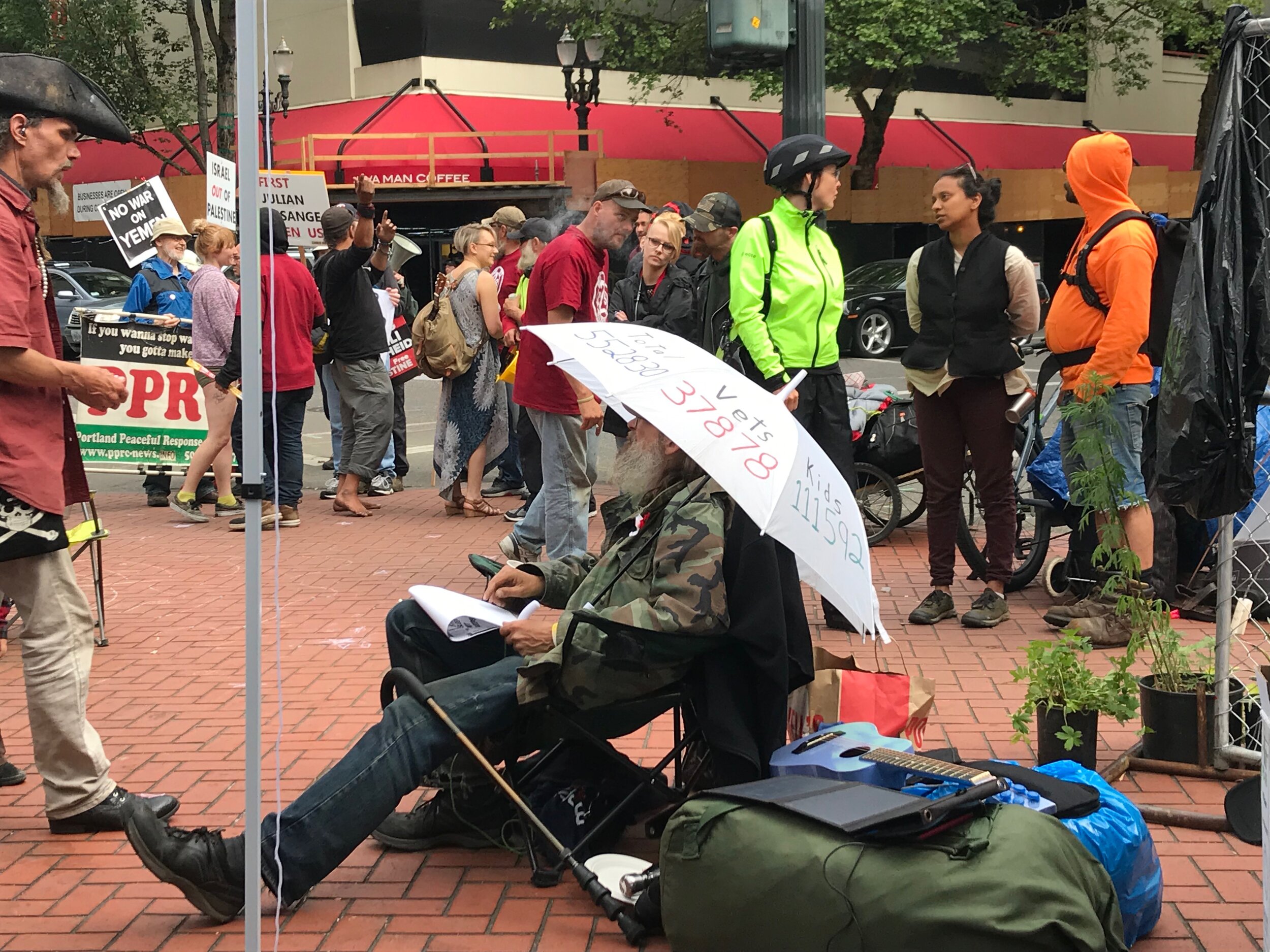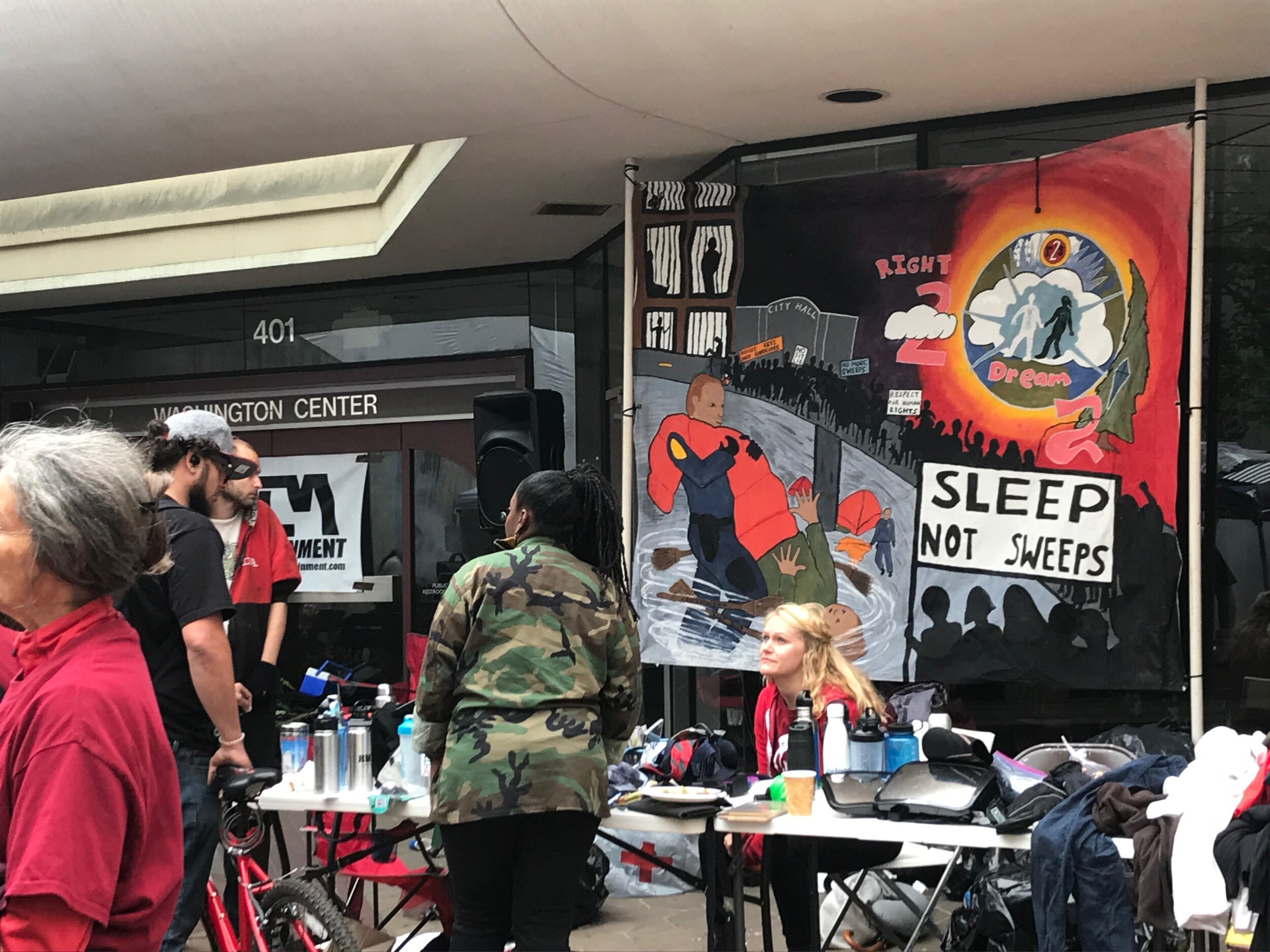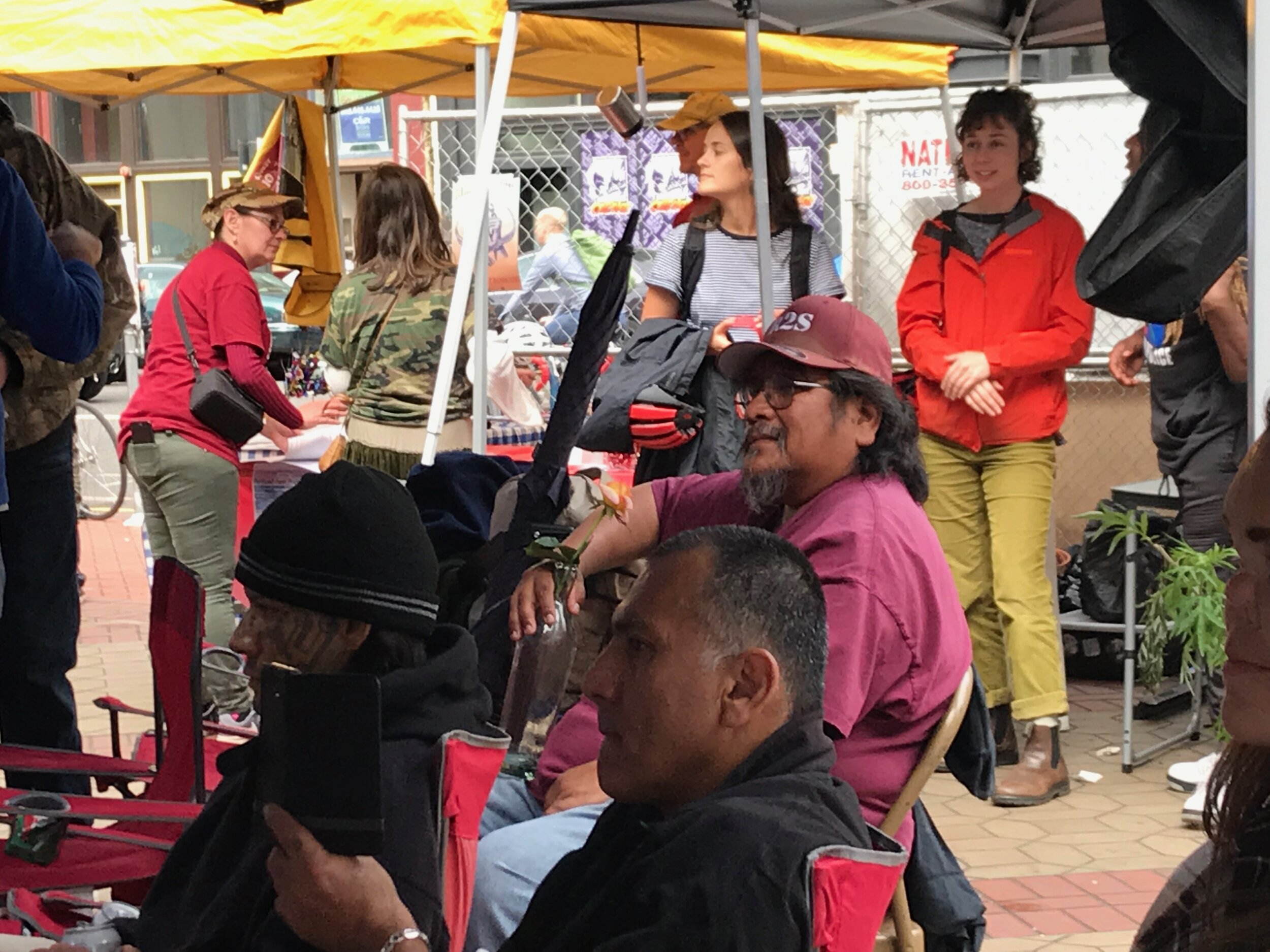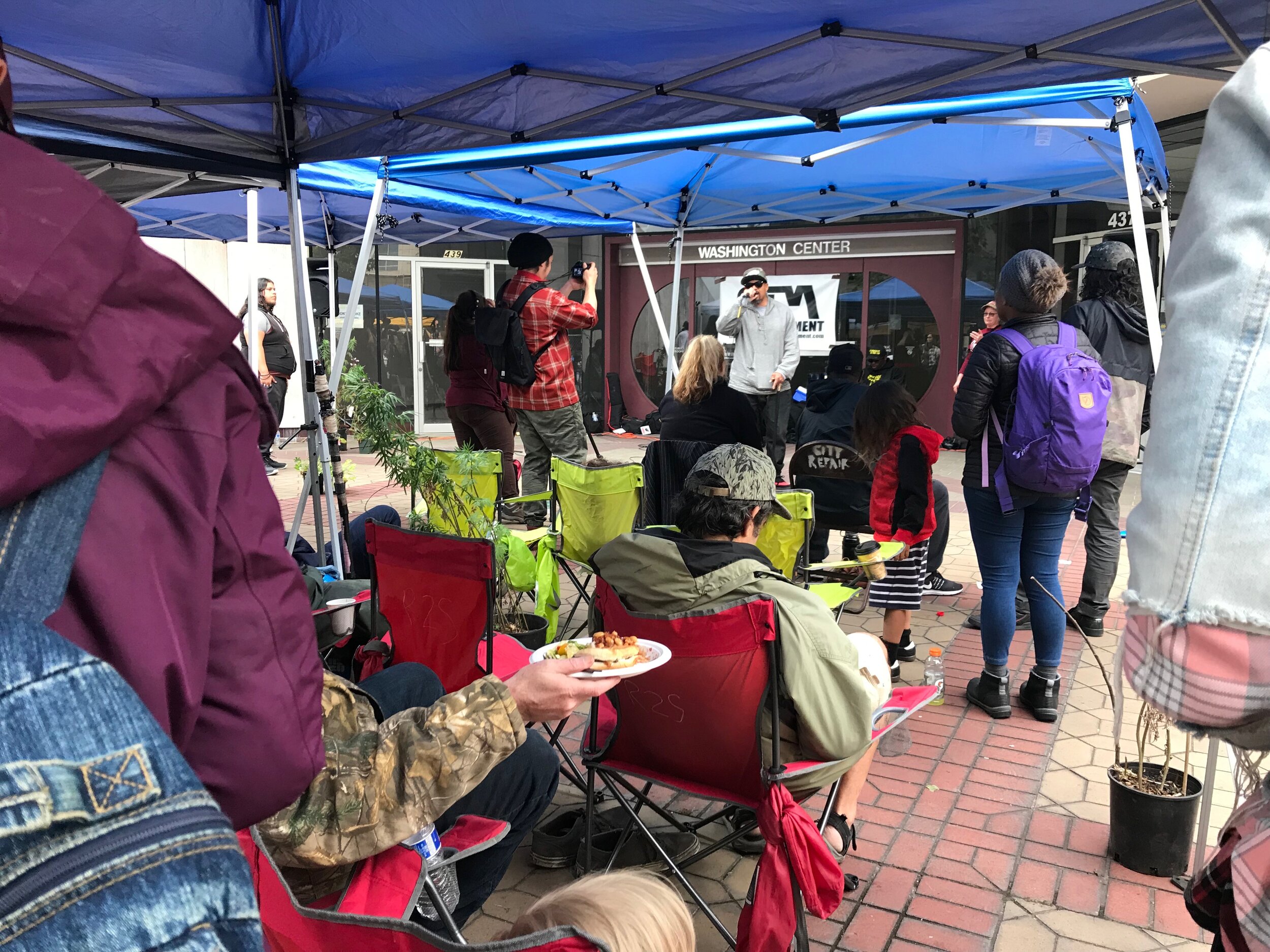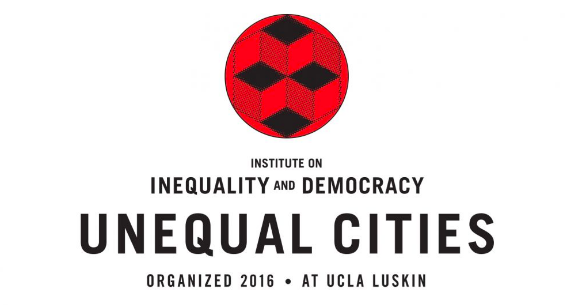The CDC has advised cities to NOT sweep people during the Covid-19 pandemic. Stop the Sweeps PDX, a coalition of grassroots groups, has started a sweeps support hotline. If you are posted for a sweep, experience a sweep, or witness a sweep happening in Portland, call 844-206-2005.
Baseline Analysis of Homelessness Through an EJ Lens
“Intersecting Hazards, Intersectional Identities: A Baseline Critical EJ Analysis of US Homelessness” is out, in Environment and Planning E: Nature and Space! This paper draws on ~50 interviews, most with houseless community leaders and representatives, about the kinds of environmental hazards people face on the streets and in the margins of cities. Predictably, people reported a long list of challenges, such as extreme weather (including climate change-induced weather), noise pollution, soil and air toxins, fire danger, rodents, mold, and much more. But to understand why people face these kinds of hazards, it is necessary to go beyond the hazards themselves.
Sweeps – evictions – in downtown and residential areas push people into dangerous spaces. In turn, cities overwhelmingly respond to environmental hazard concerns with more exclusion and displacement—creating a cycle of criminalization, hazardous living conditions, and serial forced removal. This incarceration-exposure-eviction cycle multiplies and magnifies other forms of violence that disproportionately impact homeless people along lines of race, gender, age, (dis)ability, and so on.
Read the full thing here.
Portland STOP THE SWEEPS Campaign - Now Live
The same week the City of Portland planned to sign a $22 million, 5-year contract with Rapid Response, a biohazard agency that performs the majority of sweeps in Portland, several groups including R2S, Sisters of the Road, Greater Portland Trans Unity, Portland Assembly, the National Lawyers Guild, Glitter Squadron, and the Western Regional Advocacy Project announced a campaign to STOP THE SWEEPS. Stay tuned for next steps following a press conference in front of City Hall on Dec. 19, 2019. Portland is now one of several western US cities where people are saying enough is enough. Others include Denver, LA, San Francisco, and Oakland.
Read about the impacts of sweeps in Portland here.
RESTING SAFE team Baltimore-bound, "On the Wind"
To cap off our year of research and advocacy, a few of our Resting Safe team members took our show on the road! We traveled to Baltimore to meet with one of the researchers we work with, Chris Hawn, at the University of Maryland-Baltimore County, along with Nava and Julian, kick-ass UMBC students. We also got to convene and talk with inspiring activists from Baltimore’s Housing Our Neighbors and New York’s Picture the Homeless.
Spider Solidarity: In addition to collaborating with folks who’ve lived outside to collate and share lived expertise on environmental dangers and how to address them, part of the goals of Resting Safe have always been to put the means of testing and remediation at the disposal of the folks most effects by environmental hazards. To this end, Chris shared with us how to harvest a spider web to test for accrued air toxins! Chris, as well as Nava and Julian, were generous enough to take most of a day and teach us about different kinds of spiders, whose web is most helpful, and show us how to gather one without hurting the spider who built it. It was quite a sight to have the Resting Safe travel crew scurrying around the University Maryland campus, spider web tubes in hand, looking for the perfect specimen. We look forward to taking this knowledge to our own communities and expanding the capacity for folks to take their environmental welfare into their own hands!
Local Celebrities: Baltimore advocacy group Honor Our Neighbors gave us quite a warm welcome to their city as well. We were honored to take a walking tour of the social services of downtown, with history and context provided by Damien, who likely knows more about Baltimore than anyone. Afterward we got down to the real work: dinner and cards! In addition to the amazing folks at HON, we were also lucky to have members of Picture the Homeless travel down from New York city. It was a wonderful night of friendship and coalition-building.
Public Roundtable: We crowned our trip with an evening at Red Emma’s local cooperatively owned anarchist bookstore and cafe. Resting Safe, Honor Our Neighbors, and Picture the Homeless put on a public round table, where we all discussed housing and environmental justice challenges and strategies, and invited public audience dialogue.
What an incredible trip! We cannot thank our host organizers and advocates enough, and hope you hit the wind and join us soon in Portland.
In solidarity,
Alex, Resting Safe.
RESTING SAFE joins activist-researchers in CDMX
RESTING SAFE PI Erin Goodling just got back from a week in Mexico City, where she joined thirty other activist-scholars to learn from each other, share successes, and strategize. Read more about Antipode’s 2019 Institute for the Geographies of Justice here.
R2S Pitch-A-Tent event protests urban camping ban
For the 9th straight year, Right 2 Survive hosted a “Pitch-A-Tent” event in protest of Portland’s urban camping ban. Once a year, the night before the Rose Festival Parade, camping on public sidewalks is allowed throughout the city. Families and other parade-goers pitch their tents along the parade route the day before the festivities, in order to secure a front row spot. Nine years ago, Right 2 Survive co-founders called bullshit and began this annual event, turning 4th and Washington into a hub of music, speakers, food, friendship, and protest. Some years, R2S supporters have taken up six or more city blocks! This year, we were about four blocks strong. General Dogon came up from LACAN to give a keynote speech. His message? “PITCH THAT TENT!”
LACAN releases update of "Dirty Divide: Out of Service" - report on human rights violations on Skid Row
“Instead of parks, water, and hand washing stations, poor communities received paddy wagons; instead of porta-potties and supplies we received additional police and patrol cars; and, instead of being treated with dignity and respect the community was punished for existing in spaces in which we were not welcome. Thirty years later the pattern continues and compliance with any form of public health standards is non-existent.”
To read more about the impacts of human rights violations on Los Angeles’ Skid Row, click here. Huge shout out to our friends at Los Angeles Community Action Network (LACAN) for all their work on the front lines building a better world by and for poor people.
Tiny House Village by and for Black folks in East Portland
RESTING SAFE team member Laquida Landford organized a beautiful event for Earth Day, focused on building a village by and for Black people in East Portland. Featured groups included Mudbone Grown, Beyond Black, and Right 2 Survive (R2S). R2S director and RESTING SAFE team member Ibrahim Mubarak spoke about his decade+ experience organizing houseless-led communities in Portland, as well as helping establish similar villages in over a dozen US cities. The event also featured opportunities for youth to learn about STEM careers. Most importantly, the afternoon was a chance for people to connect and learn from each other, and to envision new futures.
RESTING SAFE team member breaks down policing of houseless folks in Portland for the Western Regional Advocacy Project
By Alex Gillow-Wiles (reprinted from https://wraphome.org/2019/04/18/portland-a-tale-of-two-cities/)
Portland is one city with two very different opinions of itself. Whether or not the concept of our city as a liberal utopia, a playground for the young and a capital of millennial culture started with that particular television show, our city leadership has leaned hard into the idea and the monied interests that are attached. That narrative clashes with the other version of Portland, the one where a history of racism and poor housing protection has combined with the insatiable pursuit of developer dollars to create an avalanching crisis, and one of our own making.
A long pattern of decisions on the part of State and City leadership has prioritized the short term interests of land owners and business interests over the needs of the humans living here, creating this particular point in time where the economic refugees sleeping on our sidewalks and making communities in our shared green spaces can no longer be hidden. The people drawn in by the marketing efforts of Portland leadership, moving here to live in the mythical land of bicycle activism and backyard goats, are increasingly forced to confront the residents of the other Portland, the one where tepid and slow moving City responses have done little to blunt the force of our housing crisis.
In the face of this dissonance, Portlanders are turning to the police to enforce the boundaries of their world.
We’re gonna start with some numbers, but bear with me- this is important. This is all from the Willamette Week. In the last five years 911 calls have increased here by nearly a third'; however, less than a quarter of total calls have anything to do with any crime, real or suspected. People are calling to report the existence of someone living in a tent or in their car. Someone who is committing no crime and frequently not interacting with another human being, but simply living in a way that callers finds unacceptable. Police refer to these calls as “unwanted person” reports, and they couldn’t be more right. Portlanders are calling the Portland Police to report the presence of someone who is unwanted in this city, hoping that the cops will make them disappear. We as a city are using the cops to control what members of our community we see and interact with and have to acknowledge as living here. (To read more, click here.)
RESTING SAFE team speaks at RACE TALKS in Portland
RESTING SAFE/Right 2 Survive’s Ibrahim Mubarak and Laquida Landford, along with Right 2 Survive’s Adam Carpinelli, broke it down for an overflowing audience last week at RACE TALKS PDX. They drew on their own deep experiences organizing for both racial justice and housing justice to discuss the ways in which a broken housing system disproportionately impacts Black people, including via the policing of houseless people and the disproportionate exposure of houseless folks to environmental hazards. They also shared how culturally-specific organizing led by and for Black people is charting a new path forward. Ib, Q, and Adam ALL received standing ovations!
From RACE TALKS materials advertising the event: “Late in 2018, the U.S. Department of Housing and Urban Development presented its annual report on homelessness to Congress. Oregon ranks near the top of states in terms of the percentage of its homeless/houseless population that are living “unsheltered,” i.e. on the streets, in vehicles, parks or other places not designated for humans to sleep. According to the report, Black Americans continue to be disproportionately affected by houselessness. African Americans only account for 13% of the U.S. population, yet they represent 40% of all people experiencing houselessness, and 51% of the houseless who have children. Join us as some of Oregon’ top advocates for the houseless share the story behind the statistics and their efforts to stop houselessness while giving its victims dignity.”
RESTING SAFE team members speak at AAG
A handful of RESTING SAFE team members recently presented at the annual meeting of the American Association of Geographers, in Washington DC. Highlights included: Chris Hawn and Erin Goodling presenting on the RESTING SAFE project as an example of doing critical physical geography on a panel in which Melanie Malone served as the discussant; Chris speaking again about how to make citizen science relevant to environmental justice (EJ) communities; Anthony Levenda on EJ and prisons; and Erin presenting for the first time about the RESTING SAFE national phone survey, focused on environmental hazards faced by houseless communities.
Collecting Prey & Pollution
Ali Cat Leeds from Entangled Roots Press just finished screen prints of a beautiful poster she created to help get the word out about our efforts to design low-tech protocols for gauging air pollution levels in the places where houseless people make their homes. It turns out that spider webs not only trap flies and other tasty treats, but they also collect diesel particulate matter—which creates huge problems for houseless people and others living near highways and in industrial areas. Shout out to RESTING SAFE team member Chris Hawn who is leading this work, along with Dillon Mahmoudi, Nava Rastegar, and others in Baltimore!
New Artwork - for our mini booklets!
We are so grateful to the amazingly talented Aileen McPherson, a Street Roots vendor and Right 2 Survive member, who created this beautiful new artwork for our RESTING SAFE project mini-booklet.
Wise words from Q featured in Black Life Experiential Research Group event
PCC is hosting an exhibit by the Black Life Experiential Research Group, featuring an altar created by RESTING SAFE team member, Laquida - “Q”. Go check it out!
More info on HERE // Humbolt, from PCC’s website:
Exhibition Dates: April 4 – 25, 2019
Opening Reception and Black Life Sentinel Issue #2 Release: Saturday, April 13, 2019, 2 – 4 pm
In HERE || Humboldt, Lisa K. Bates and Sharita Towne, also known as the Black Life Experiential Research Group (BLERG), present research-based art and activism from the past year as Artists-in-Residence for the Humboldt neighborhood. This work centers Black life of the past, present and future as integral to the community’s fabric.
BLERG worked with students and faculty at Jefferson High School, local organizations, neighbors, and local artists. We invite the public to take part through the Social Emergency Response Center in the gallery. The SERC is a space for collective information-sharing, idea-generating, and responding creatively to the ruptures in our community. It is a space of radical welcoming and healing. When you visit, you can record your stories of Black family and community in the StreamPDX Airstream trailer studio, see art and activism by Jefferson High School students, make art and share your ideas about how Black people and community can thrive.
Some reflections on the RESTING SAFE Toolkit
Our Portland-based RESTING SAFE team met yesterday, and we reflected on the role of our popular ed EJ Toolkit project (e.g., mold and mildew, fire safety zines, spiderweb air quality testing tutorials) in this broader movement for the right 2 rest, housekeys not handcuffs, homes for all. We talked about the toolkit being a "triage" tool on the surface -- but also a tool for knowledge-legitimizing and collective knowledge-building, because of WHO is involved. If a group of wealthy college students were making this toolkit it wouldn't hold nearly the same potential; in fact, it'd amount to asking houseless people to “take better care of their environment". We also discussed the process of how interviewing people across the country around EJ concerns will contribute to a much broader national grassroots houseless group network to emerge.
Community Control Over Land, Housing, Police - MAX RAMEAU in town!
RESTING SAFE brought Max Rameau to town last week, from Pan-African Community Action the US Human Rights Network in DC (and co-founder of Take Back the Land). We organized 5 events over 3 days, and all told engaged with ~175+ people around the topics of community control over land, housing, and police. Here’s a run-down of the events and key take-aways brainstormed by our Portland-based RESTING SAFE team:
1) BIG event : 100+ people gathered at Woodlawn MIC on a rainy cold night, mostly from very grassroots/radical Black and/or houseless orgs, to hear Max speak on community control over policing. We also witnessed some beautiful music, art, and homemade food, in a space filled with groups' banners and posters. The crowd gave Max a well-deserved standing ovation! Our organizing team reflected on how refreshing it was that Max could launch into some pretty radical ideas without spending time trying to convince the audience that racism and homelessness are problems that can't be solved via lukewarm reforms.
2) Nuts and bolts of community land trusts: Hosted by Lisa K. Bates and Sharita Towne from the Black Life Experiential Research Group, this meeting focused on everything CLT — from why a group might configure an LLC vs 501c3 CLT model, to how different arms of a group using different tactics might work together. We also discussed why a new, as-yet dreamed up model might be even better than a CLT for de-commodifying land and housing. Key point: start with an overarching objective, then work backwards to figure out a strategy to get you there.
3) Grassroots group strategy session - This was the culminating event. People from a dozen mainly houseless and/or very grassroots tenant rights groups, most who'd attended #1 and/or #2 above, convened to reflect on "lessons learned" for their own work + connected with people from groups who might not know each other. Max helped set the stage with a few words, small groups formed for break-out discussions based on interest areas (Business Improvement District policing, building people power / knowledge, self-run houseless communities trying to HOLD ground once they have it, and neighborhood-based anti-displacement / affordable housing), and then groups reported back to the larger group and committed to a next step (like, "trade contact info and convene for a CLT study session").
4) Smaller session: Knowledge-sharing meeting with the Portland Clean Energy Initiative / Oregon Green New Deal coalition folks. Max was interested in learning more about the model to take to the east coast.
5) Smaller session: Max presented on why the civil rights movement needs to evolve into a human rights movement.
KEY TAKEAWAYS (from the RESTING SAFE lead organizing team’s group reflection meeting following the big events):
structural racism rather than racial prejudice should be the target of our work
get clear on building power instead of settling for influence - know the difference and strategically choose one or the other, but whenever possible shoot for building power
study and prepare for crisis and chaos -- the "movement moments" when totally new and transformative models can emerge
PACA is proposing a new model of community control over police, and why this "movement moment" is an important one with regard to policing; learn more about it, and think about ways to adapt it
it is imperative to be "scientific" in our thinking about movement-building
develop systems of accountability instead of relying on trust
center the most marginalized in our work - i.e. Black queer women and trans people
it is imperative that white people organize their own communities to fight systemic racism and racial prejudice
acknowledge that "resistance" has an important place -- but that now is a time to push forward
join an org! - don't go it alone
get clear on objectives before deciding on strategies
community land trusts are one key tool for de-commodifying land (and they emerged out of Black communities in the south long before white Vermonters started them) -- but develop clear analysis to know if/when to pursue a new model
a human rights movement is a logical next step, building on the civil rights movement
and MUCH MORE!
HUGE shout outs to Max for taking time to share wisdom; Mic Crenshaw, Donovan Smith, Johnny Cool, Coya Crespin, Q, and Ibrahim for joining Max on the stage Friday night; to all the groups who tabled (Monica, Benjamin, and Kaitlyn from WRAP, Sarah from Glitter Squad, Chris from Black Community of Portland, Aileen and Charles from Street Roots, Coya from CAT, Adam and Lisa from Right 2 Survive); everyone who brought food and helped organize other events, especially Joanne from Lents Strong!, Lisa and Sharita from BLERG, and Donovan from Gentrification is Weird!; Woodlawn MIC, Rose CDC, BLERG, and Social Justice Action Center for providing space; Equal Exchange for kicking down snacks and coffee; and funders - Antipode Foundation, Social Justice Fund Northwest / PHCC, and Bonneville Foundation.
RESTING SAFE - Report from Los Angeles
For the last few days of January, Ibrahim, Laquida, and Erin travelled from Portland to LA for the Housing Justice in Unequal Cities conference, hosted by UCLA’s Institute on Inequality and Democracy and LA Community Action Network. The Housing Justice in Unequal Cities research network brings together researchers, grassroots groups, and other institutions working to understand “issues of housing precarity (evictions, homelessness, displacement, segregation, informal settlements)”, as well as “practices of housing justice (eviction blockades, community land trusts, housing cooperatives and commons, tenant organizing, homeless unions, social rent, land value tax)”. We were honored to represent Portland and share the work that Right 2 Survive is doing in collaboration with local groups and others via the Western Regional Advocacy Project and beyond, as well as to learn from people who attended from around the world!
Mold & Mildew Pamphlet - hot off the press!
We finally finished up our very first RESTING SAFE Toolkit product, a pamphlet highlighting the harmful effects of mold and mildew, as well as some of the ways in which people sleeping in tents, cars, and other makeshift shelters can keep mold and mildew at bay.
We are so grateful to Street Roots vendors for sharing their expertise with us! For example, one person described how they slip a few dixie cups in between their tent and tarp to keep the air flowing. Genius!
And we LOVE the artwork, created by Quinn!




